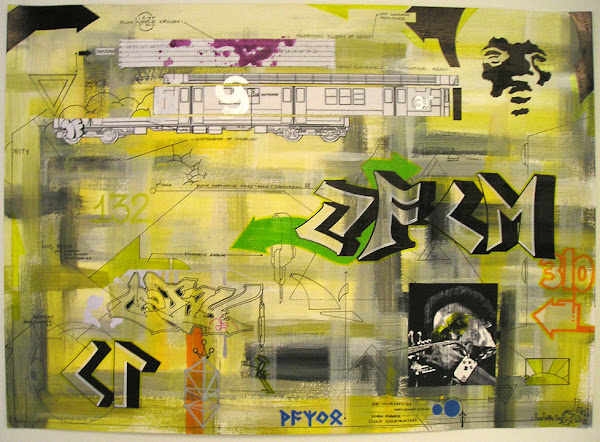 Daniel D. Tompkins
Daniel D. Tompkins
Freemason and Patriot
1774 - 1825
Daniel D. Tompkins was born in Scarsdale, New York on June 21, 1774. He attended Columbia University which was known, at that time, as Columbia College, and was admitted to the bar in New York State in 1797.
Tompkins had a stellar career not only in New York State politics but also on the national stage. In 1804 he was elected to Congress but he resigned before being seated in order to become an Associate Justice of the New York State Supreme Court. He served in that capacity from 1804 - 1807 when he resigned in order to preside as the newly elected Governor of New York, a position he held for ten years. But as fate would have it Tompkins was once again in the distinct position of resigning from a prestigious job to serve in a higher office, that of Vice President of the United States.
Before resigning from the Governorship to assume his seat as Vice President of the U.S., he wrote a letter to the New York State legislature recommending that a date be set aside for the abolition of slavery within the borders of New York. His voice was heard and the New York State Assembly chose the date of July 4, 1827 as the official date to end slavery in New York, thirty six years prior to Lincoln's Emancipation Proclamation. Immediately thereafter he began his service as Vice President of the United States under the Presidency of James Monroe from 1817 to 1825
Tompkins' Masonic career began in 1800 when he was made a Mason in Hiram Lodge No.72 located in Westchester County in New York. He was only a Mason for four months when he was elected Deputy Grand Secretary in 1801.
While serving as Vice President of the United States, Daniel Tompkins was twice elected Grand Master of the State of New York and served in that capacity from 1819 to 1822. During his first run for the position of Grand Master his only opponent was Dewitt Clinton who would later succeed Tompkins not only as Grand Master of Masons but also as the Governor of New York. While serving as Governor, Tompkins found time to host the visiting Marquise de Lafayette and entertained this esteemed Brother Mason at his residence on Staten Island.
Tompkins received his Scottish Rite Degrees in 1808 and received the 33rd Degree on August 5, 1813 at the hands of a provisional Supreme Council for the Northern Masonic Jurisdiction. Once the Supreme Council, NMJ was officially formed, he assumed the title of Sovereign Grand Commander and was the first to hold that position. He served as Sovereign Grand Commander until his death in 1825.
It was during his tenure as Governor of New York that Tompkins' life began to take a tragic turn. When the New York State Legislature refused to approve funds to finance the War of 1812, as other States had done, Tompkins took out loans using his personal property as collateral to help finance the war effort. When the war ended, neither the State nor the Federal Government saw fit to repay Tompkins for his generosity so that he could free himself of the debt that he incurred on behalf of his country. In 1824 after years of litigation both the Federal Government and the State admitted that they owed Tompkins ninety thousand dollars, which was a considerable sum of money in those days.
But it was far too late, Daniel Tompkins' financial woes caused him much grief and he began a slow and long descent into the bottle where his life was consumed by alcoholism. He died three months after retiring as Vice President of the United States and his body lies in a vault of the Churchyard of St. Mark's on the Bowery located on Second Avenue and 11th Street in Manhattan. Also in the Churchyard is a bronze bust and a plaque commemorating the life of Daniel D. Tompkins. Until recently, Daniel D. Tompkins' final resting place was neglected.
On Monday November 9, 2009 the United States Daughters of 1812, New York Chapter, will conduct a ceremony to honor Daniel D. Tompkins. The Sovereign Grand Commander of the Ancient Accepted Scottish Rite for the Northern Masonic Jurisdiction, Ill. John William McNaughton, 33° will be present and will speak about Tompkins' Masonic service. The Deputy for the State of New York the Ill. Peter J. Samiec, 33° will also be in attendance. Representing the USD 1812 will be Ms. Emily Malloy, Chairman of the Tompkins Commemoration Committee and Ms. Anne Farley,President, NYC Chapter, USD 1812. The event will be held from 9:00am to 12:00pm; a reception will follow.
A special thanks to Brother Isaac Moore Devine for bringing Daniel Tompkins to my attention and thanks to John Mauk Hilliard for leading me to the Daughters of 1812. I also would like to thank the Supreme Council, NMJ, our Sovereign Grand Commander and the Deputy for the State of New York for contributing financially to this project.
As we prepare to celebrate the birth of America this coming weekend, let us not forget Daniel D. Tompkins: a man, a Mason and a patriot who served his country admirably and whose legacy shall not be forgotten.
"There are those who look at things the way they are, and ask why......I dream of things that never were, and ask why not?"
- Robert Kennedy
Have Pen, Will Write
Clifford Jacobs
Dieu et mon Droit
















 Have Pen, Will Write
Have Pen, Will Write









.jpg)


